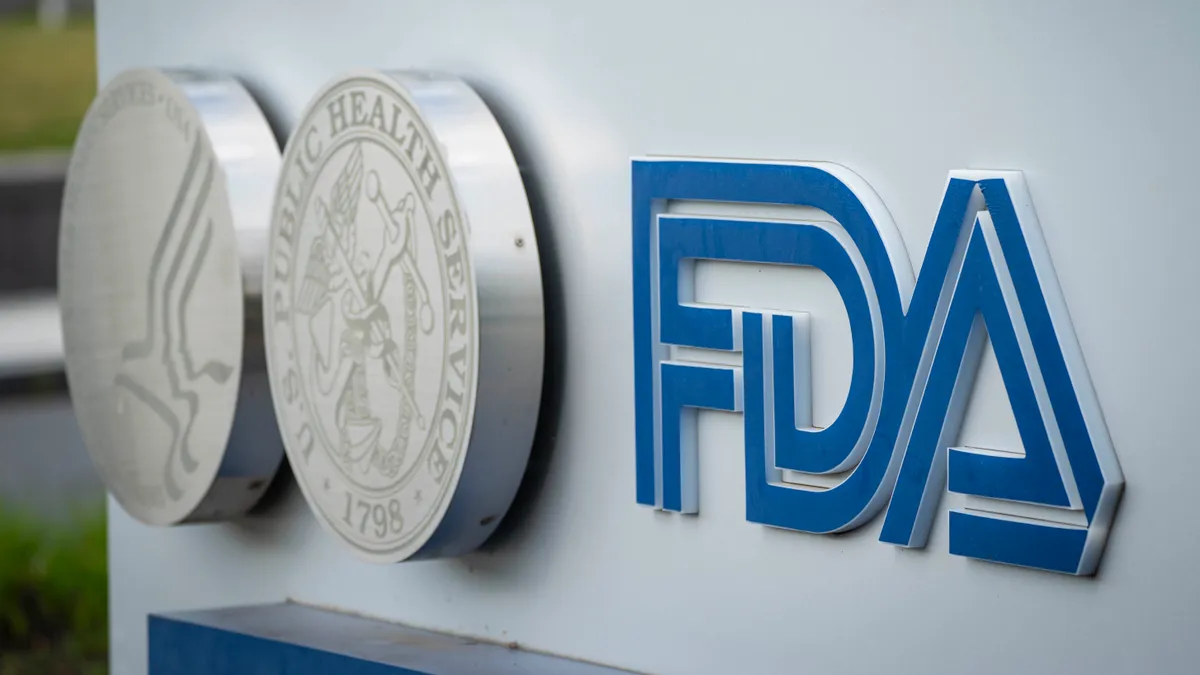UPDATE: Dec. 29, 2021: FDA earlier this month warned that molecular tests from Applied DNA Sciences, Meridian Bioscience and Tide Laboratories were not able to detect the omicron variant, causing false negative results, and should not be used by clinical laboratory staff and healthcare providers.
However, FDA on Dec. 27 issued an update in which it said Tide's test has been modified and is now expected to detect omicron.
"The test has been modified and is now a multiplex test with an added reverse primer to detect the omicron variant," according to the agency. "Bioinformatics analysis demonstrated a 100% match with omicron variant sequences as well as delta variant sequences. Initial laboratory testing also demonstrates the ability to detect the omicron variant. Additional laboratory testing is ongoing as a condition of the EUA, reissued on December 22, 2021."
Omicron contains mutations to the spike protein and if tests rely on the spike gene to detect the virus it can cause false negative results. In the case of Applied DNA Sciences' Linea COVID-19 Assay Kit, the test has two viral targets on the SARS-CoV-2 genome and both cover the portions of the S-gene where these mutations occur and are not able to detect omicron.
Meridian Bioscience offers a single-target test that is not able to detect omicron due to a nine-nucleotide deletion in the N-gene, which is the genetic target of their diagnostic.
Major manufacturers of both polymerase chain reaction and rapid antigen tests, including Abbott, BD, Quidel and Siemens Healthineers, have said their diagnostics can detect omicron.
However, FDA on Dec. 28 said early data suggests that while antigen tests do detect the omicron variant, some may have reduced sensitivity based on preliminary studies by the National Institutes of Health's Rapid Acceleration of Diagnostics (RADx) program which evaluated their performance using patient samples containing live virus.
FDA did not say which specific companies' tests were analyzed by RADx.
Dive Brief:
- FDA has identified three COVID-19 molecular tests that are not able to detect the omicron variant and warned that the diagnostics from Applied DNA Sciences, Meridian Bioscience and Tide Laboratories will return false negative results.
- The agency on Wednesday updated its list of tests impacted by virus mutations. While FDA continues to gather additional information and work with the three manufacturers to address these issues, it recommended the diagnostics not be used by clinical laboratory staff and healthcare providers.
- Makers of both polymerase chain reaction and rapid antigen tests have said their tests can detect omicron. Siemens Healthineers is the latest company to claim its testing portfolio is unaffected by the variant. However, Tim Stenzel, director of the FDA's Office of In Vitro Diagnostics and Radiological Health, told test developers Wednesday during a virtual town hall that the agency continues to receive "a lot of inquiries" about omicron and its potential impact on diagnostics and will continue to focus efforts on evaluating molecular and antigen tests.
Dive Insight:
As omicron continues to spread worldwide, public health experts contend it's critical that currently available COVID-19 tests are able to detect the variant and work as well as they did in detecting other strains such as delta. However, mutations in the viral targets of some tests could result in false negative results, according to FDA.
"Clinical laboratory staff and healthcare providers should be aware that false negative results may occur with any molecular test for the detection of SARS-CoV-2, particularly if a mutation occurs in the part of the virus' genome assessed by that test," FDA's website states.
Following a preliminary review, FDA announced in late November that it expected PCR and rapid antigen tests used in the U.S. to be able to detect the omicron variant. However, the agency now says three diagnostics are "expected to fail to detect the SARS-CoV-2 omicron variant" and they should not be used until the issues are resolved.
FDA noted on its website that Tide's DTPM COVID-19 RT-PCR test is currently being performed in the U.S. by more than 30 laboratories, providing the names and cities where the labs are located, but added that the diagnostic "is not believed to be used for high volume testing."
In the case of Meridian Bioscience's Revogene SARS-CoV-2 test, FDA said that the company has not yet distributed the diagnostic and does not intend to do so inside or outside the U.S. until the issue is resolved. No information on the current use of Applied DNA Sciences' Linea COVID-19 Assay Kit is provided by the agency's website.
The Applied DNA Sciences is the first two-viral target assay to fail to detect omicron. Meridian's and Tide's diagnostics are both single-target tests.
"Fortunately, we think that these [three tests] are still relatively low abundance, relatively low volume," Stenzel told test developers Wednesday, noting that FDA continues to monitor viral mutations and variants and the potential impact on COVID-19 diagnostics and serology tests.
Stenzel warned that FDA believes omicron "is going to be a significant variant in the U.S. in very short order."
FDA will update its website "as new and important information is gleaned" regarding potential impacts on COVID-19 tests, Stenzel said. "Sometimes we'll do something out of an abundance of caution, others we will update for information that we think is critical," Stenzel added.
The agency's evaluation of antigen tests continues, Stenzel said, and "is dependent on both developers and/or the U.S. government actually acquiring omicron samples and being able to test them in the lab."












